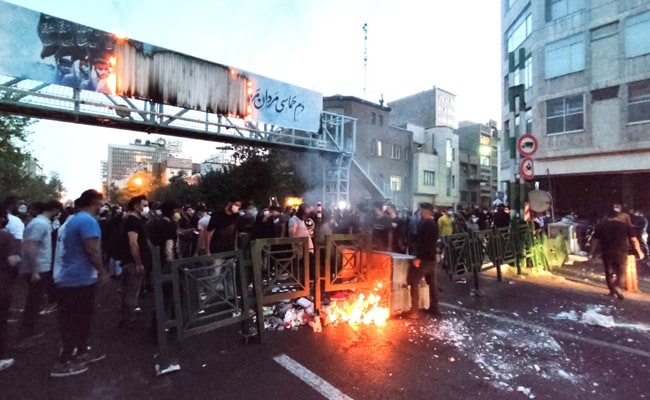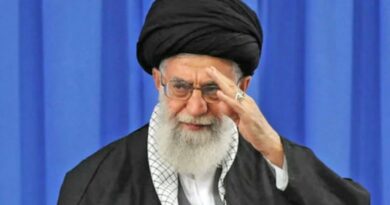Iran Releases Journalist, Rights Activist Arrested Over Protests: Report
Iranian authorities have detained thousands since nationwide protests broke out following the September 16 death of Mahsa Amini.
Iran released Friday a human rights activist as well as a journalist arrested during months-long protests triggered by the death in custody of Mahsa Amini, local media reported.
Iranian authorities have detained thousands since nationwide protests broke out following the September 16 death of Amini, a 22-year-old Iranian Kurd who had been arrested for allegedly breaching the country’s dress rules for women.
“Farhad Meysami was arrested in July 2018 and was released from prison after serving his sentence,” the reformist daily Shargh reported.
Meysami, a doctor and human rights campaigner, had been refusing food for several weeks over the authorities’ response to the protests, his lawyer Mohammad Moghimi said.
Shargh also reported that “Hossein Yazdi, a political activist and journalist, was released from Dastgerd Prison” in the central city of Isfahan on Friday.
Arrested on December 5, Yazdi had been sentenced to one year in prison and a two-year travel ban, the daily had previously reported, without elaborating on the charges against him.
It had said Yazdi was the “manager of Mobin 24 website and Iran Times news channel”.
On Thursday, social media reports said seven women activists and journalists had been released from Tehran’s Evin prison.
They included campaigner Saba Kordafshari, held since 2019 after she campaigned against the obligatory hijab for women, and prominent photographer Alieh Motalebzadeh whose latest stint in jail began in April last year, the reports said.
It was unclear if the recent releases were linked to an announcement this month from the office of supreme leader Ayatollah Ali Khamenei that he had agreed to pardon a large number of convicts, including some detained over the protests.
Authorities say hundreds of people, including dozens of security personnel, have been killed during the demonstrations which they describe as “riots”.




